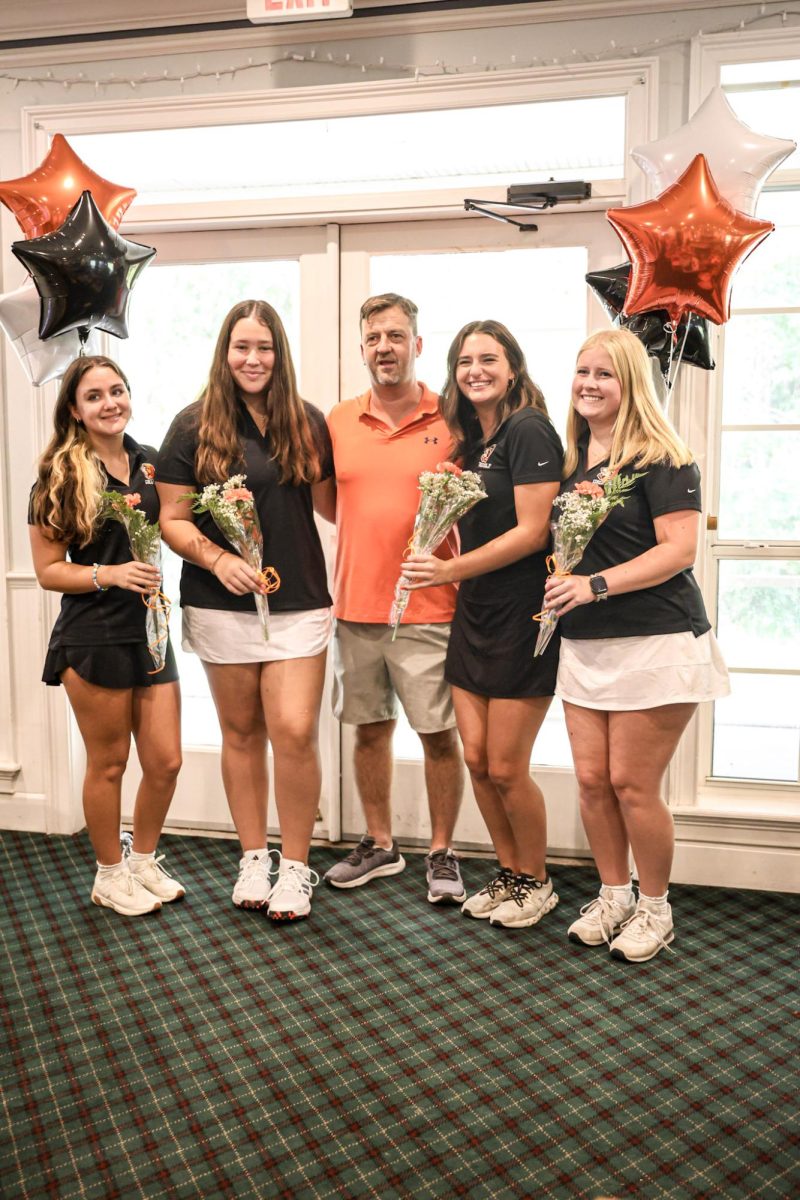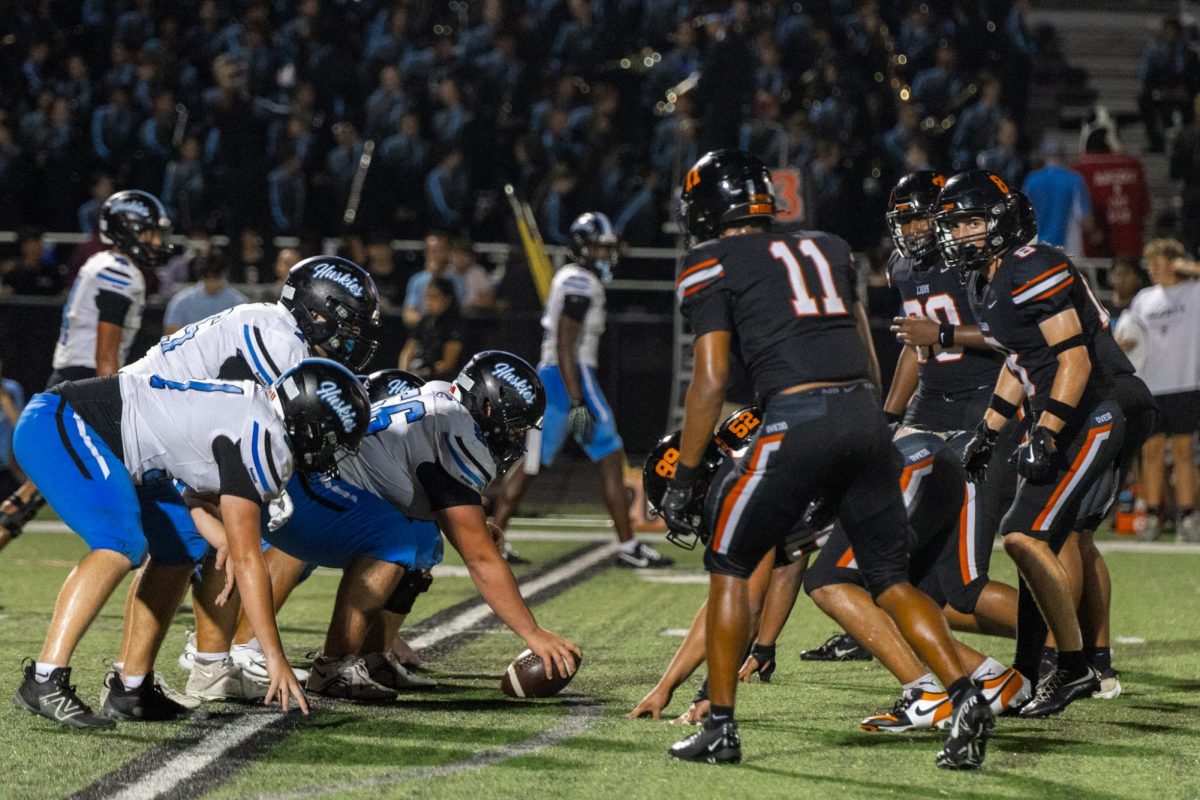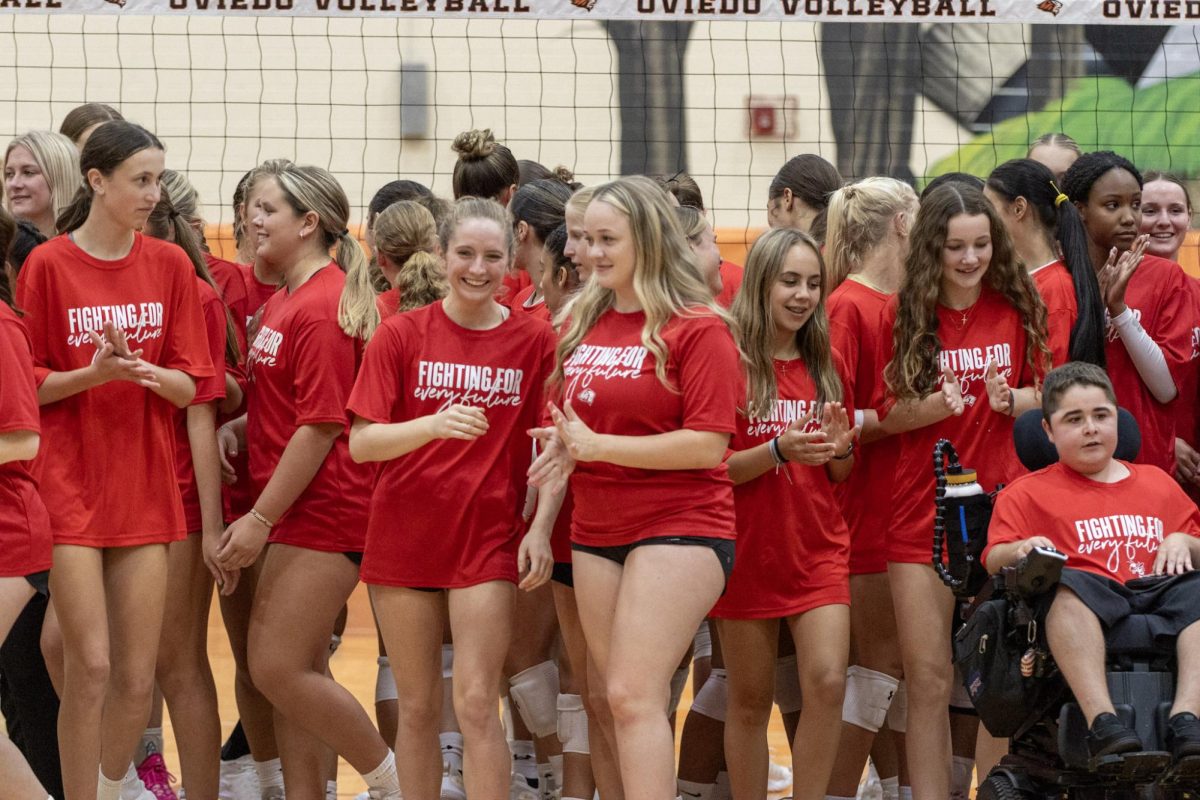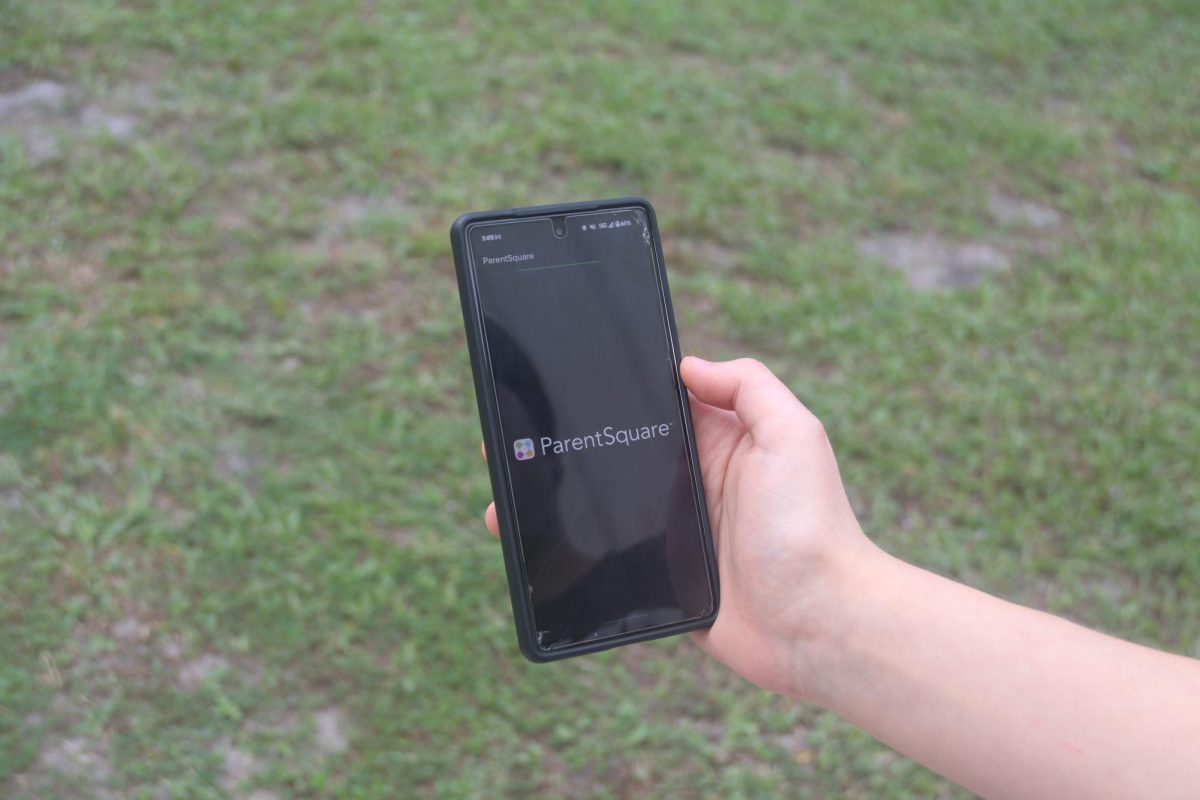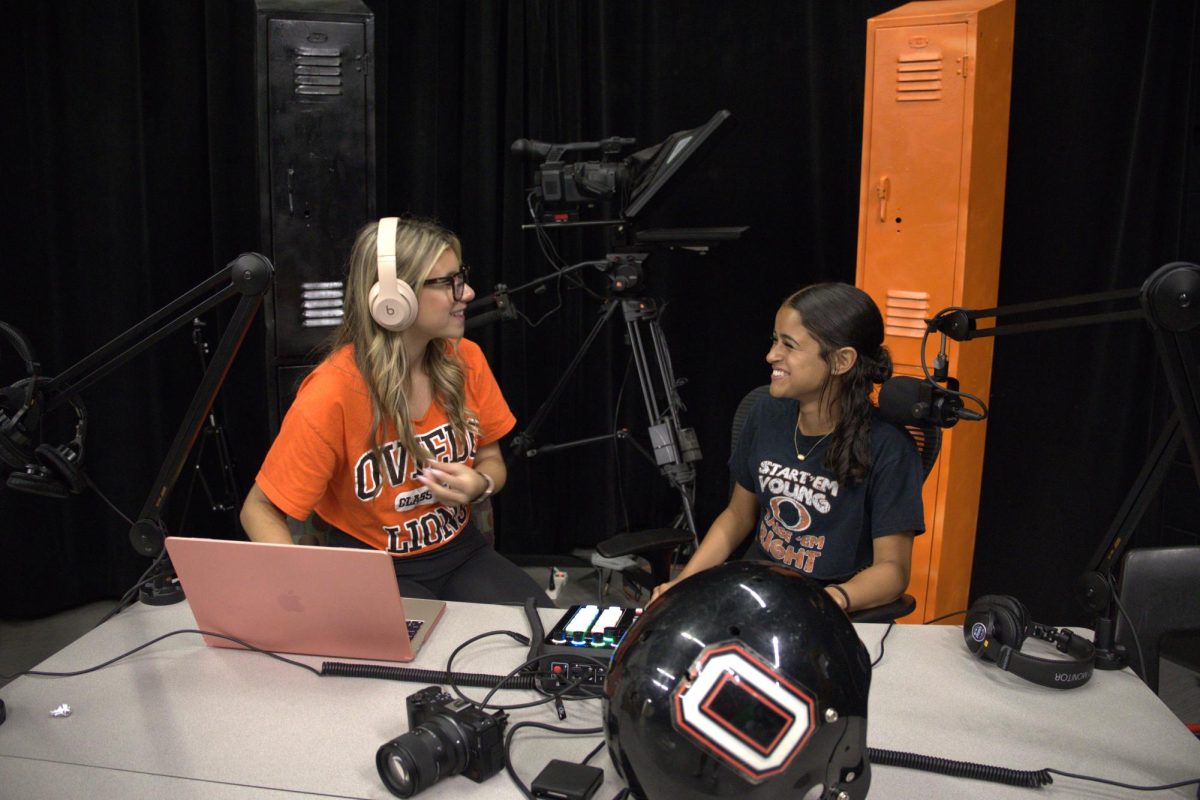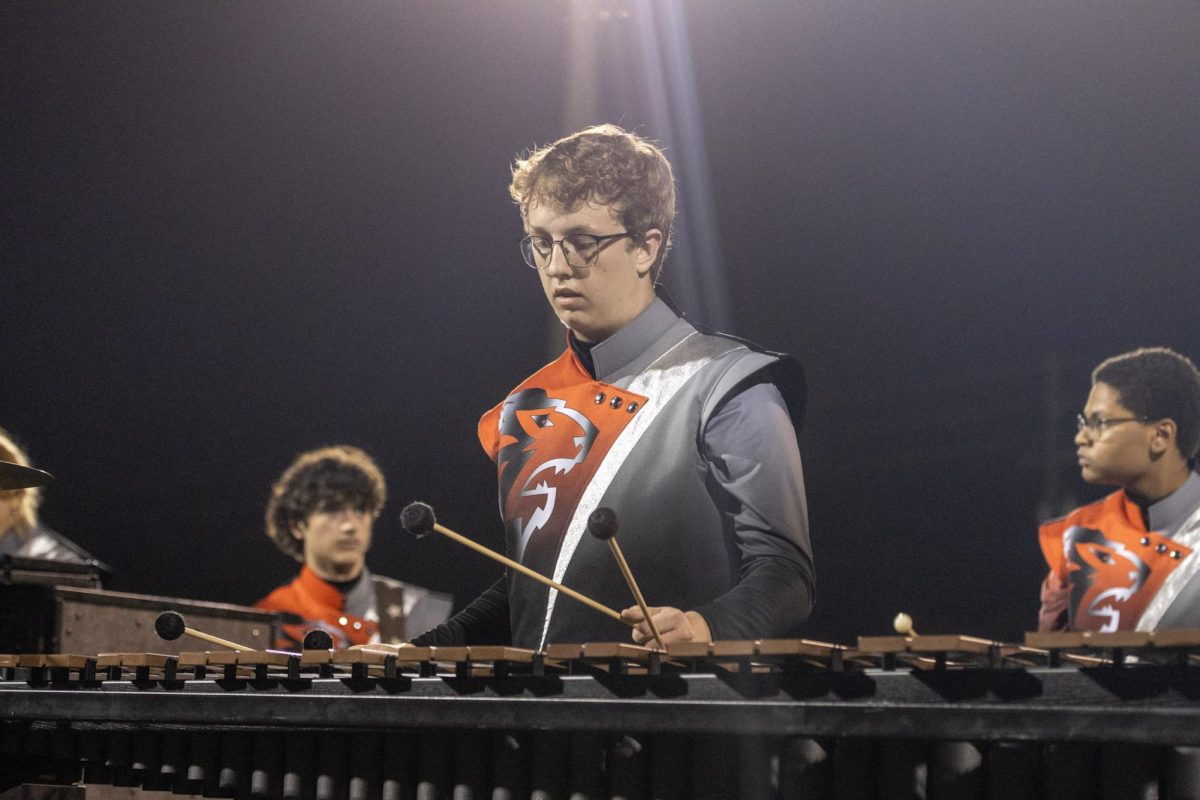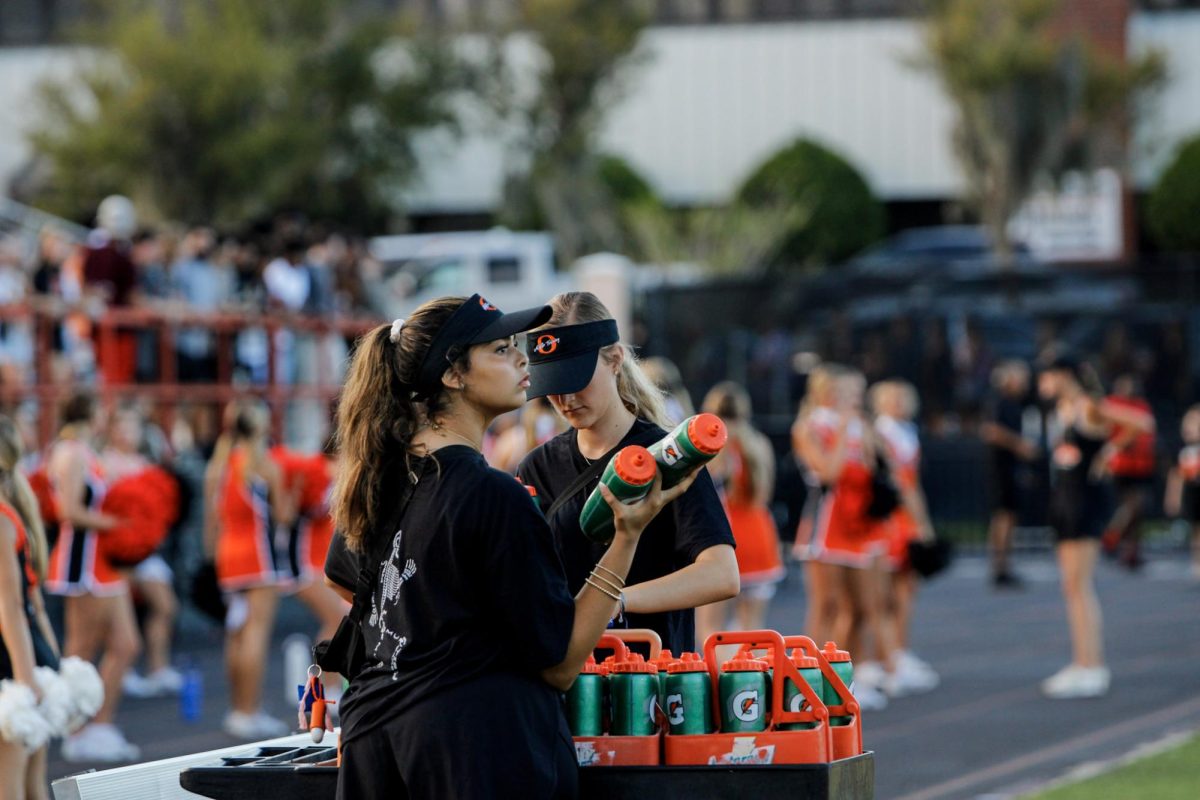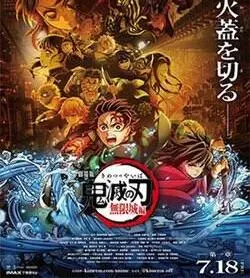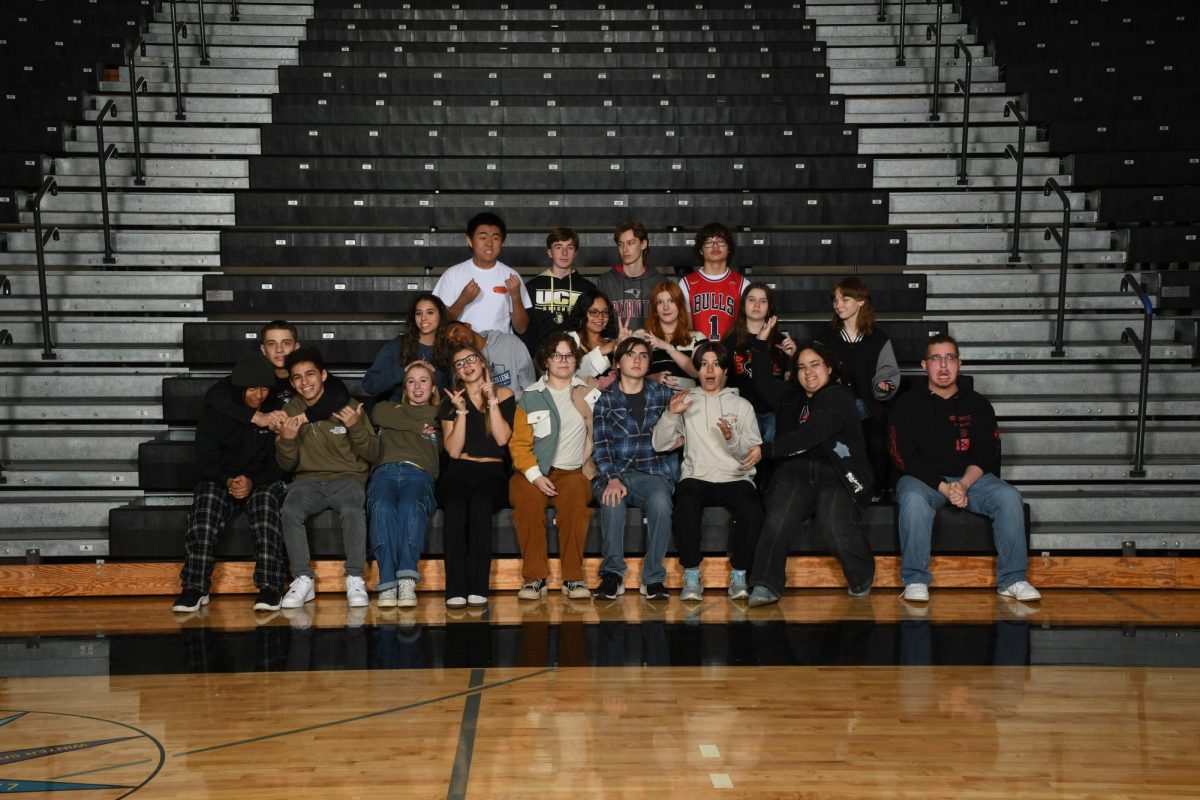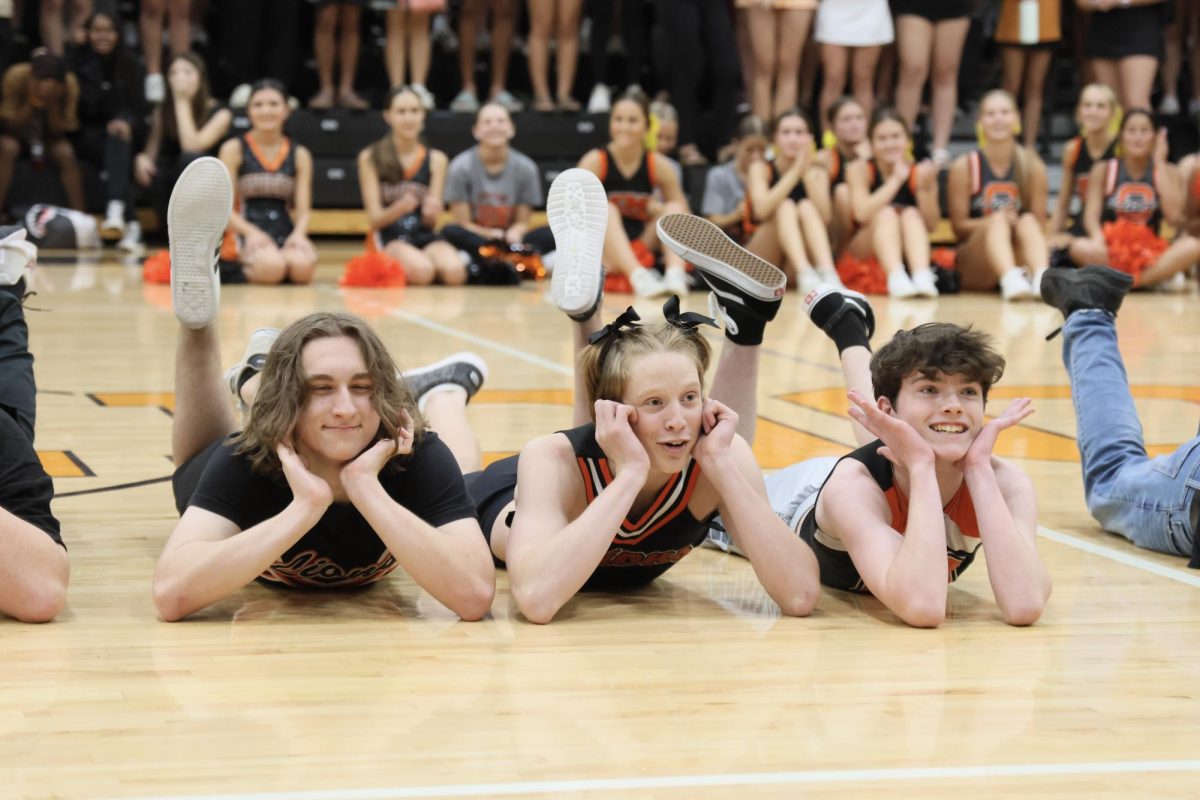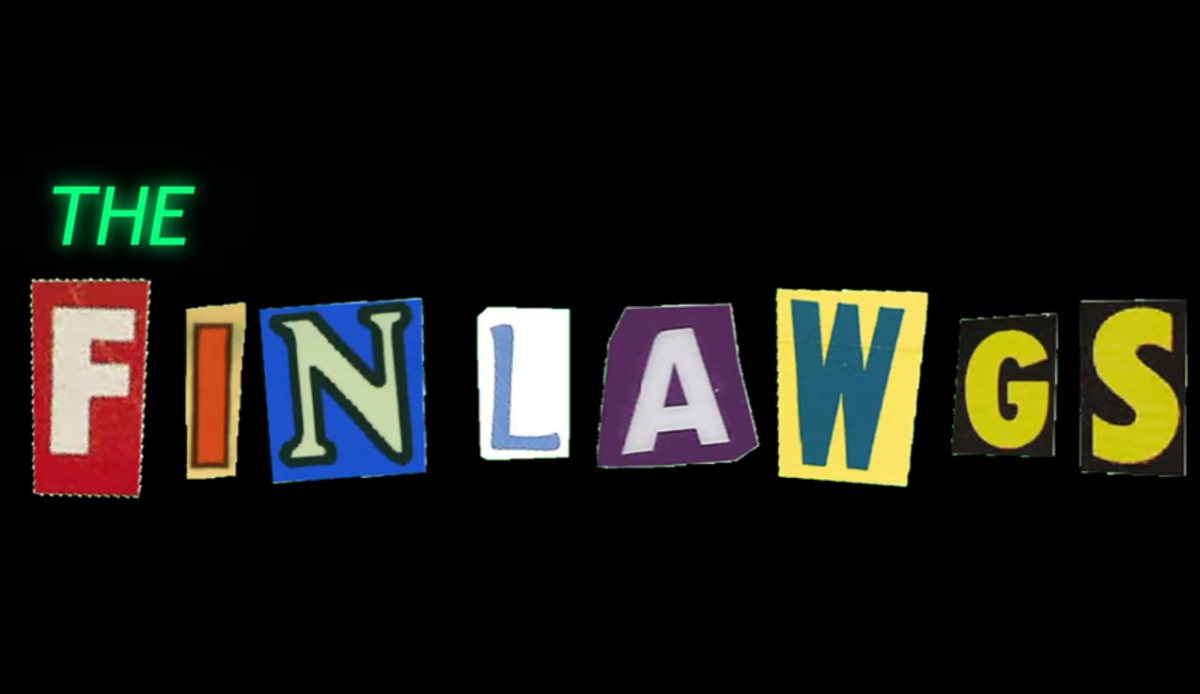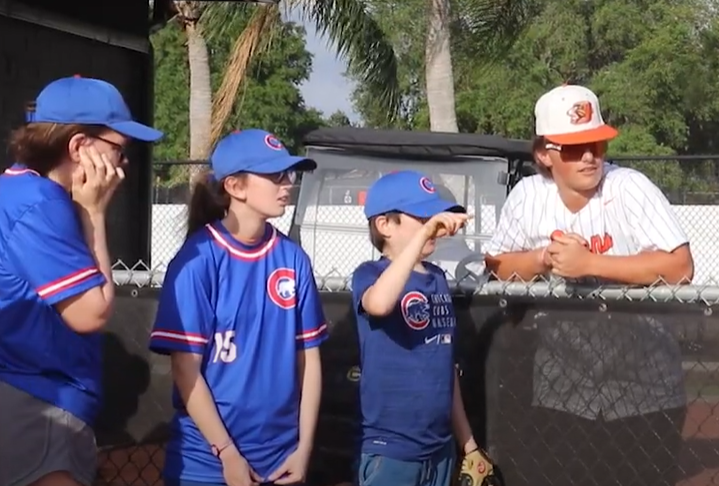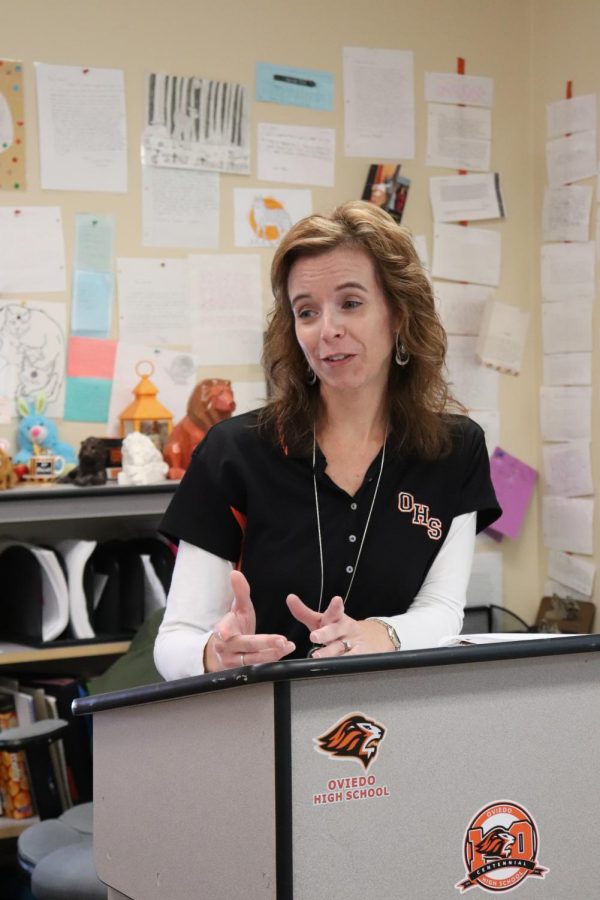Kristin Storie recounts her story of becoming a teacher
Kristin Storie teaches the class a lesson from her podium.
Kristin Storie may be a math teacher now, but, as her last name suggests, her story about becoming a teacher is an engaging one about finding her true passion in life. Like most teachers, she didn’t initially start with teaching students. Storie interestingly began in the corporate field.
She was offered volunteer gigs all around Orange County when she was still a corporate worker. Seeing the students she helped be able to create something, even though it was something mundane like making an assembly line, at such a young age sparked a thought in her. Corporate work wasn’t fulfilling her, but teaching was.
“I really did feel more ‘at home’ in a classroom than I ever felt in working my corporate jobs,” Storie said. “The fun the kids were having, and the knowledge they were gaining was something that I had the privilege to be a part of.”
Storie was able to volunteer again after that, and help more kids. She was able to work with struggling kids and help them succeed in school. Storie loved being able to work with kids again, so she decided to become a teacher.
Before becoming a teacher in Seminole County, Storie was working as a teacher in Orange County. She recounts one of her favorite memories from teaching which was having a close knit bond with two classes. She taught the classes for 3 years straight so it was almost like she grew up with the students.
“The overall feeling that we were a family- supporting each other either in academics or in personal struggles,” she said.
Storie saw them as a family because of the combination of characters the students expressed, their desire to learn, and how open the students were to Storie when she would make a mistake. These classes and their memory have brought her great joy, even more so the fact that she has seen them grow into adults and was invited to some of their most important events as someone who inspired them. With tight-knit classes, Storie sought out teaching more for the experience of seeing her students feel connected with another and growing to see the importance of school.
Even though Storie has been teaching for over 15 years, she still finds a lot of enjoyment in it.
“You develop a mentoring relationship with your students,” Storie said. “They begin to trust you and once they realize you are there for them, to help them, to encourage them, to see that moment.”
Seeing her students understand the things that they struggle with the most, makes her extremely proud and happy. Their success makes her job worthwhile to her.
Being a math teacher, she’s aware it’s not a lot of students’ favorite class. Though she doesn’t find it too bothersome, she still finds engaging ways to get her subject across to them.
“If you can’t be entertaining or be able to laugh at yourself or tell silly jokes, students will tune you out. Once they realize that I am an actual person and not just a teacher, learning can really start,” Storie said.
Another way Storie engages her students is by sharing her old ACT score–with a high score on the English portion and relatively low score on the math portion–without revealing that it’s hers. Storie then asks her students what that person should focus on for an occupation, based on their score, and usually students name careers that are heavily based in English. Then, she asks them about what occupations that person should avoid. Students usually name math-related careers, like engineer or math teacher. Then, Storie reveals it’s her ACT that they were looking at, shocking students with the contrast between her scores and her career.
“Letting the students know that just because you’re not good at something at this instant doesn’t mean that you can’t still learn it and improve yourself,” Storie said.
She does this to let her students know that it’s okay to not be good at every subject- letting her students know that they can trust her.
Nowadays, Storie enjoys being able to teach her students financial literacy and math that will be applicable in her students’ future lives. This allows her to teach them relevant skills, regardless of their future career.
Your donation will support the student journalists of Oviedo High School. Your contribution will allow us to purchase equipment and cover our annual website hosting and printing costs. Thank you!


